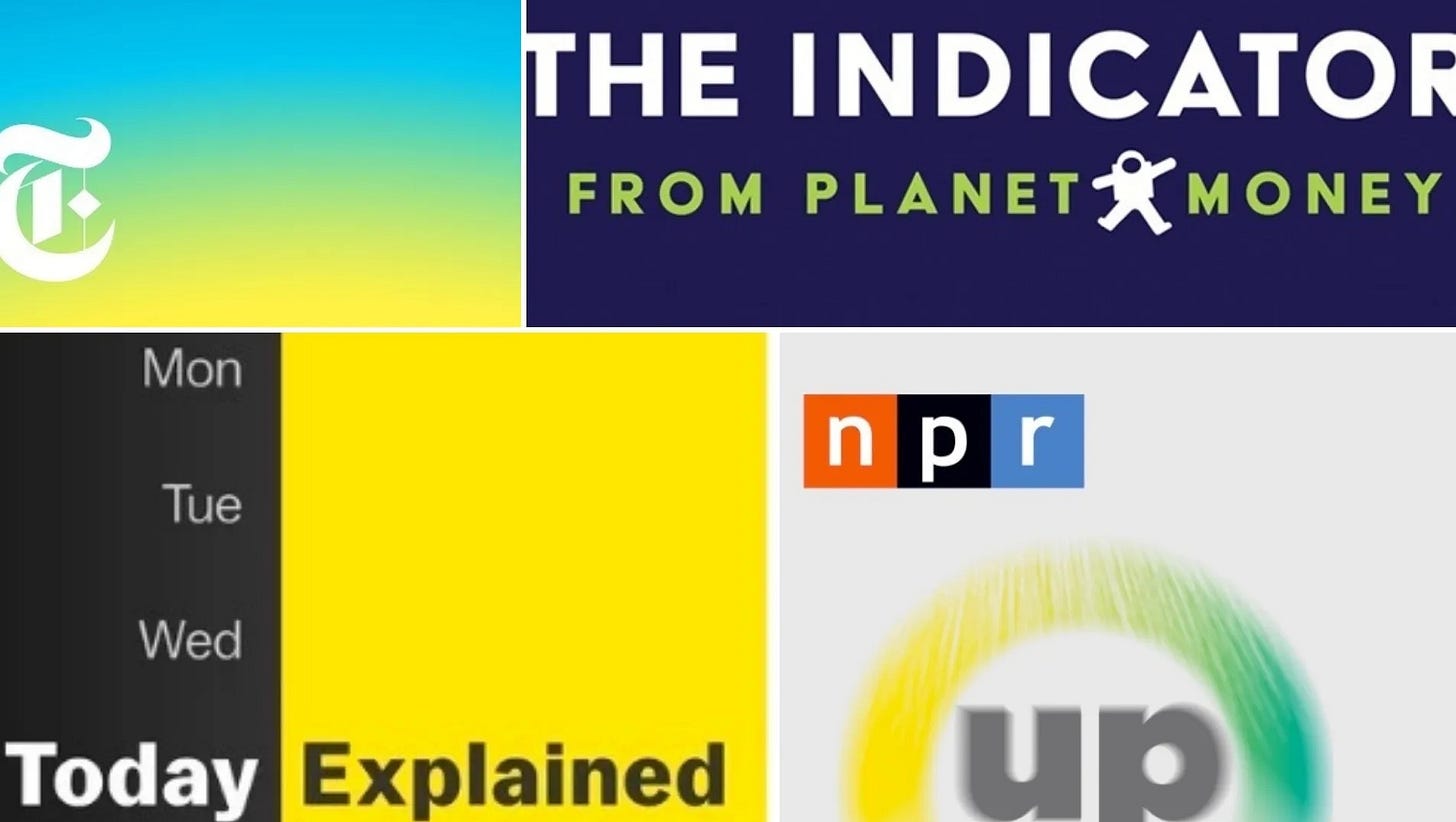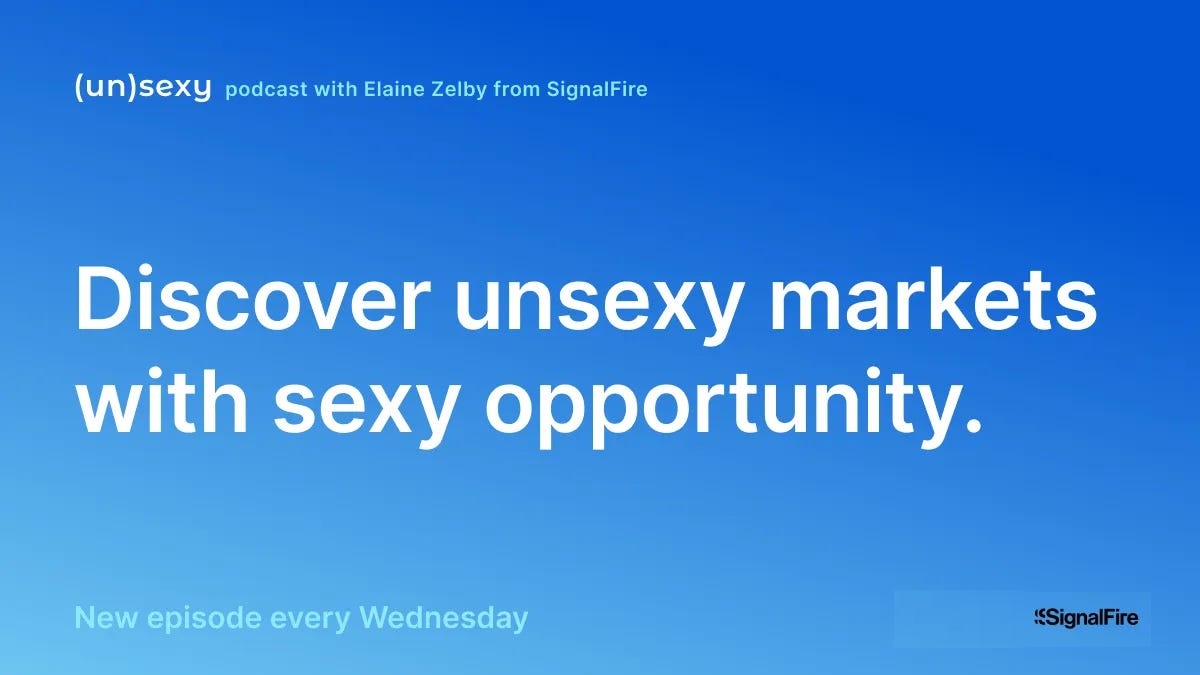3 Things: AI Personal CRM, Daily Podcast Network, Contract Resource Management
Happy Sunday and a very warm welcome to all the new subscribers! I’m thrilled and honored to have you as readers and truly appreciate your thoughts and feedback 🙏. Each edition of 3 Things will contain a dive into 3 rabbit holes I’ve found myself going down recently and associated business opportunities. Subscribe to get each week’s edition straight to your inbox and if you enjoy it, please share (I suck at self-promotion so can use your help)! This past week I’ve been thinking a lot about:
AI Personal CRM
Daily Podcast Network
Contract Resource Management
1. AI Personal CRM
There have truly been innumerable attempts at personal CRM (Customer Relationship Management) products. Salesforce popularized the CRM for business as a way for organizations (primarily sales) to track every interaction they have with a prospect or customer. Most busy professionals at some point in their early career come to the conclusion that there needs to be a tool to manage their personal relationships in a similar way as it becomes harder and harder to keep in touch with friends, family, former colleagues, mentors, etc. The number of dead bodies in this space is pretty extensive and some of the main reasons are that everyone has their own specific workflows, ways of managing contacts, and needs when it comes to personal CRM… plus typically low willingness to pay for a solution and general laziness around putting in the work to make it suit their needs.
There are some apps out there on the market like Queue and Dex which will sync your contacts and provide an easy way to set reminders to reconnect, and ways to take action via text, email, or social media. The onus is on the user, however, to curate their list and add context (eg. met Rohan at CES in 2022, engineer at Tesla), and manually determine cadence for each person. With all of the recent advances in AI, now might be the time for a personal CRM to gain massive adoption as it could be proactive and comb the internet for relevant information or events, leverage AI to add context based on time, location, calendar information, email, etc, proactively determine the optimal cadence, and autonomously generate copy and send out messages on your behalf. There is obviously need for human-in-the-loop but I think if much of the manual work was automated and it was centered around just-in-time communication based off of specific reasons as opposed to just arbitrary cadence, it would get a lot more usage. Similarly, you could also leverage a tool like this if you were looking to find someone in your network with a certain skill or connection to a company (as examples) which would be much more effective than just LinkedIn. You should be able to ask questions, in a simple search box format, like “who in my network could help me hire a VP Marketing” or “show me a list of everyone I know that is currently living in Austin”.
2. Daily Podcast Network
I’m obsessed with podcasts. I listen to ~4-5 hours of content a day (I listen at 2.5-3x speed so I’m not literally spending 5 hours each day) and use podcasts as a way to get my news, keep up with current events, learn about history, and stay up to date on tech trends. I find podcasts helpful for work, for personal life, and also discovered a hack that if you want to read a non-fiction book, just find podcasts where the author is being interviewed as you’ll get the highlights in about 1/20th the time it would take to read the book. I personally like longform content but I also find short daily podcasts to be extremely effective. Every day, I listen to The Daily from the New York Times to get my political and cultural news, TBOY (The Best One Yet) and The Indicator by Planet Money for my financial news, Techmeme Ride Home for my tech news, and Today, Explained for history/culture. Each of these podcasts is under 20 minutes so very easily digestible and also covers a diverse and differentiated set of topics. I rarely get to all my newsletters but with podcasts, it’s a companion medium so I can be listening while doing other things like commuting, exercising, doing chores, or whatever else doesn’t require full mental attention.
Given how hard it is to grow and monetize podcasts, many podcasts are either launched through a network or choose to join a network to help scale as well as get marketing, sales, and operational support. A lot of these networks today either come from places like NPR or are focused on comedy, sports, or highly produced serialized stories. Niche daily newsletters can perform extremely well (think Morning Brew which sold to Insider for ~$75m) and many large publishers offer newsletters on all kinds of subjects where users can opt into the ones that they are interested in (think HBR email newsletters). Taking the same model, a podcast network could either acquire or spin up their own daily, short-form podcasts on the biggest stories of the day for a variety of topics. Listeners could select all of the subjects they care about and each day, they’ll get a few 10-15 minute podcast episodes giving them everything they need to stay up to speed on those subjects. Today, podcasts are still monetized via ads but as a network, it’s easier to scale listenership and centralize ad sales. Additionally, you could choose industries or subjects which would skew towards higher value audiences and since the listenership will be highly targeted, it will be easier to both acquire and provide value to sponsors.
3. Contract Resource Management SaaS
There has been a growing trend for the last decade of white collar workers going out on their own as freelancers, or choosing to join an agency instead of being employed by a single company. As of Q3 2022, 36% of employed respondents to a nationwide survey identified as independent workers, up from 27% just a few years ago. At the same time, startups and enterprises alike have continued to leverage more and more contract resources (both individual freelancers as well as agencies) for all kinds of labor from design and content marketing to engineering and finance. Many companies outsource whole functions like SEO or Salesforce administration to an agency, and most companies leverage offshore workers to handle tasks like manual data entry, act as virtual assistants, or manage the webdev for their website. Each of these contract resources needs to be vetted, contracted, managed, and paid. Plus, each department or team needs to generate their own budget and work with finance to balance cost vs need across the entire organization.
With the current market conditions, and as tech companies do massive layoffs, there will be more skilled freelancers available in the market, and as hiring freezes stretch teams, managers will turn to contract resources to help fill gaps. Currently, the vast majority of enterprises expect their use of contingent labor to increase over the next 12-24 months. There are platforms out there like Stoke Talent which was acquired by Fiverr in 2021, but I think the opportunity still remains to build a large company in this category and the timing is perfect right now. Given you have multiple key stakeholders like finance, recruiting, and hiring managers across the org, focusing on providing each group with a simple and seamless way to achieve their goals while unifying budgeting, management, compliance, and payments could be an easy sell. I think there could be different solutions for SMB (tech startups), mid-market, and large enterprise so I’d pick one demographic (I think the more up-market you go the better right now) and build for their needs. Over time, you’ll have access to a ton of proprietary information as to which freelancers or agencies have worked with which companies and in what capacity, so it would be natural to start to build out a marketplace with intelligent match-making capabilities to provide additional revenue streams and make the core product even more sticky.
That’s all for today! If you have thoughts, comments, or want to get in touch, find me on Twitter at @ezelby and if you enjoyed this, please subscribe and share with a friend or two!
~ Elaine
And in case you like podcasts…
From scrap metal to timber, estate planning to freight pooling, the new (un)sexy podcast is a meandering exploration of just how sexy unsexy industries can be.
Join us weekly as we uncover stories of niche and esoteric markets, understanding their history and looking at the future through the eyes of the pioneering entrepreneurs willing to bring technology and exponential improvements to these often overlooked spaces.
Listen now on Spotify, Apple, Google, or wherever you listen to podcasts.






